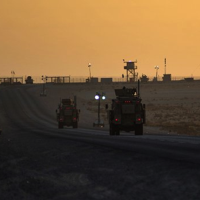The Iraq War began with “shock and awe.” It ended with quiet dignity, with battle flags coming down from their standards, with a free but fragile Iraq walking into the unknown and a bloodied but unbowed U.S. military saluting its commander-in-chief and marching home. Much about America’s war in Iraq was remarkable: the rapid collapse of Saddam Hussein’s regime, the surprising absence of WMDs, the unexpectedly high economic and human costs, the patience of the American people -- eight years is a long war for this nation’s short attention span -- the ferocity of the postwar occupation, the sacrifice and tenacity of America’s armed forces, the Baghdad surge that saved America from defeat and Iraq from spiraling into civil war. But of all these, perhaps the most remarkable is the way America said goodbye. It was poignant and poised, peaceful and purposeful.
The debates over whether President George W. Bush should have launched the war and over how President Barack Obama ended it will go on for many years. Perhaps someday a consensus will emerge, but perhaps not. It pays to recall that 36 years after the fall of Saigon, Americans are still debating the war in Vietnam.
Suffice it to say that Bush, after receiving approval from the Senate (77-23) and the House (296-133), ordered U.S. forces to take down Saddam Hussein’s regime largely because Sept. 11 changed the very DNA of U.S. national-security policy. In his book, “Surprise, Security and the American Experience,” historian John Lewis Gaddis concludes, “Any administration in such a crisis would have had to rethink what it thought it knew about security and hence strategy.” Was deterrence any longer possible? Was containment viable? Was giving repeat offenders like Saddam the benefit of the doubt responsible?

